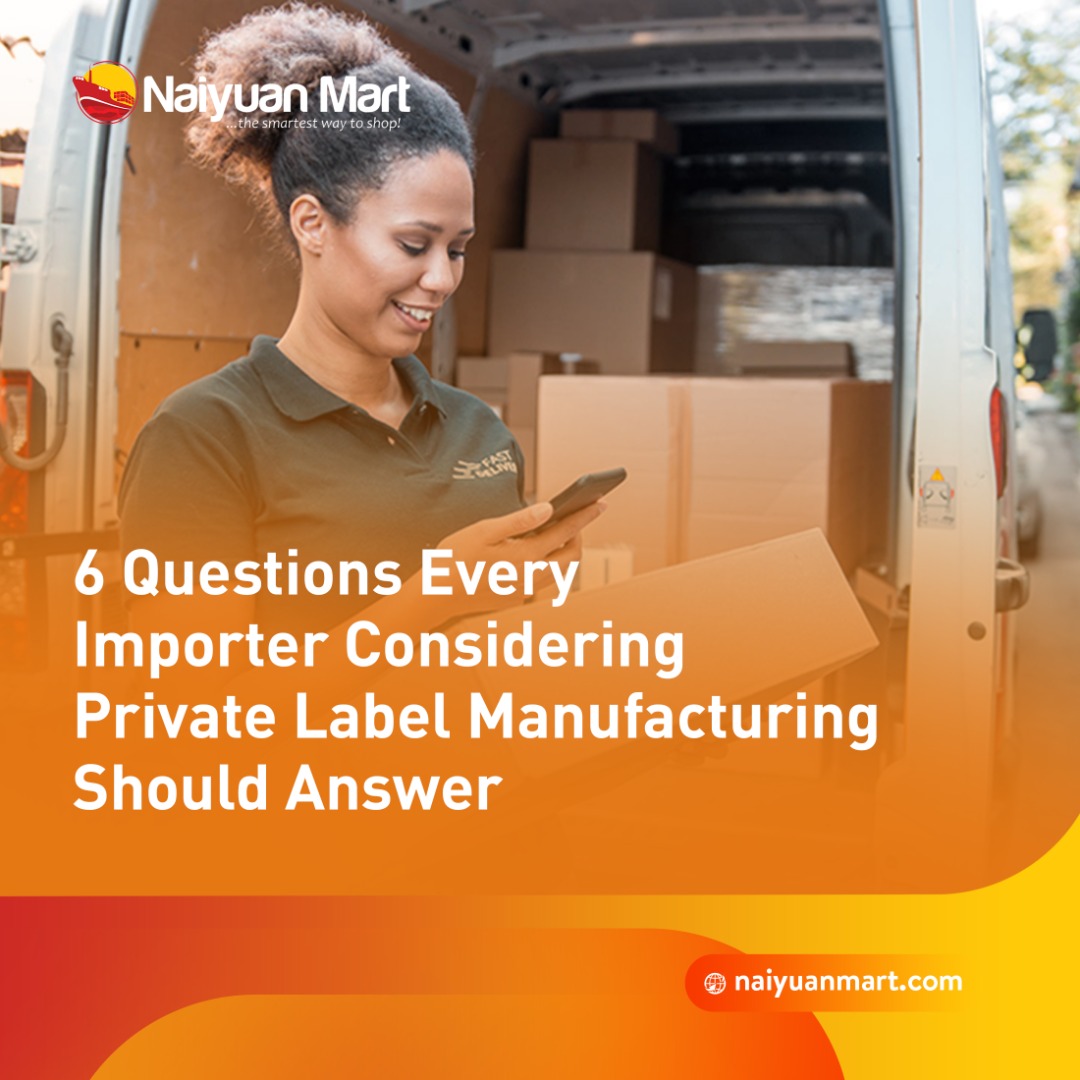6 Questions Every Importer Considering Private Label Should Answer

Many importers have had to deal with several issues arising from going into private label manufacturing. From spending lots of hours to find a product to sell to sending dozens of emails to the suppliers to figure out if the product they are thinking of manufacturing is possible.
Here is what a typical Private Label Manufacturing process looks like:
First of all, considering that the supplier is in a timezone that is essentially 7 hours ahead of Nigeria, email correspondence may not be very effective.
Also, the fact that most Chinese manufacturers speak native Mandarin, the language barrier is another huge challenge that many importers face as they don’t speak native Chinese, and many suppliers don’t speak english. Oh well!
Secondly, once you have managed to get a fair response from a supplier that your product can be made to your specifications, you have to arrange for samples to be sent so you can decide whether the quality of the product is acceptable or even sellable.
We know from experience that a quality sample does NOT necessarily mean that your entire production will be of the same quality. So you need to order multiple samples to make sure the supplier isn’t trying to play a smart one on you!
Thirdly, there’s the stress of negotiating for the Minimum Order Quantity (MOQ).You have send more emails to try and negotiate a price for your desired order quantity. And we both know that this is never just one email, especially if you want to order below the Minimum Order Quantity (MOQ). Sigh!
Fourthly, after you’ve gotten that out of the way, you have send more emails to get an accurate carton size of the product so that you can solicit a shipping quote from freight forwarders.
In addition, you have to contact a few freight companies with your carton dimensions and origin and destination addresses to nail down an accurate shipping quote to aid your business planning.
In addition, there’s the issue of government and importation checks where you have to figure out if your product has any special certification or compliance requirements that you’ll need to pay for before it even has a chance of making through customs. To make matters worse, you can’t rely on suppliers to know this information, as they produce that same product for dozens of countries, all of which have different compliance requirements . So, there’s no way you can expect them to know with any degree of certainty what the requirements are for Nigeria or your destination country. Let’s not talk about the duration to get all the appropriate documents that you may need.
Finally, you have to calculate your duties and taxes for the production to make sure you’re as accurate as possible with your cost analysis.
The entire process looks pretty tasking right?
Well, this is what it takes to go into private label manufacturing. Many importers who go into PLM go through these tasking processes.
Guess what happens after they’ve ticked these items off the checklist? They have to repeat the same process above for they’re freight forwarders!
The whole idea of going through this process is to know what your landing cost might be and if the product is profitable enough. However, considering that you have to contact multiple suppliers by yourself to get different cost analyses, this process is not only tasking but time-consuming!
By now, it should be obvious that going into private labeling is not for the faint hearted but here’s the good news!
We can make it easy for you!
Consider the awesome idea of having a reliable partner to take all this stress off you while you have more time to create a marketing plan and business operations plan, build your business to increase revenue and prepare to launch your product.
The 6 questions you still need to answer before going into PLM…
- Does this product make sense to manufacture? Is there a current demand for it by your target market
- What is the estimated timeline for production? How long will it take to produce one and 100 (or more) of it
- What order quantity makes the most financial sense? Considering the budget, what quantity do you need to test the market
- Are there any red flags I should know about? E.g hazardous substances, product use, etc.
- Does this product require any certification or license, is it approved for importation? Check for Customs approved licenses guide here? You can also read the customs full prohibited imports here
- What is the total landing cost of this product?
If you can answer the above questions, we are optimistic that you can hit it off much more as a private label manufacturer when you make us your business partner. This is because we render PLM as a stand-alone service quite impressively!
Our resource material on Private Label Manufacturing (coming soon!) will guide you and help you make the best of your private labeling manufacturing venture. You can minimize risk and save yourself from the stress involved in doing so alone.
Reach out to us for your private label manufacturing needs by clicking the floating button at the bottom of your screen.
Other readings you may consider:
